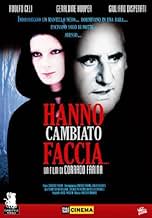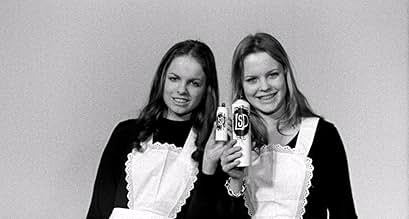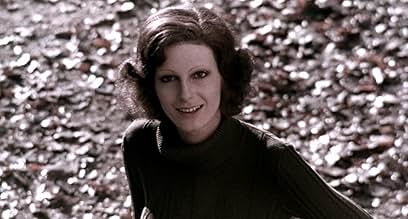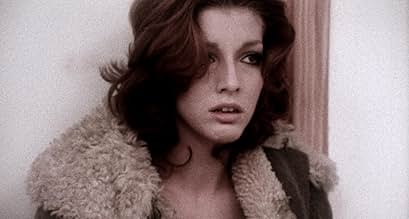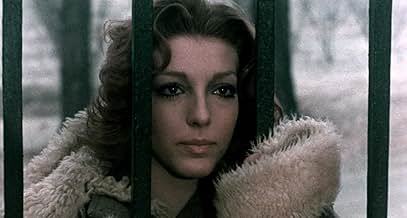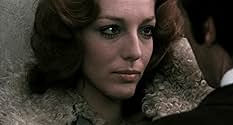Adicionar um enredo no seu idiomaIn this allegory on capitalism, director of a known car corporation invites one of his employees to his country villa to give him the good news. He just got promoted. However, the old man is... Ler tudoIn this allegory on capitalism, director of a known car corporation invites one of his employees to his country villa to give him the good news. He just got promoted. However, the old man is not what he seems and promotion has a price.In this allegory on capitalism, director of a known car corporation invites one of his employees to his country villa to give him the good news. He just got promoted. However, the old man is not what he seems and promotion has a price.
- Direção
- Roteiristas
- Artistas
- Prêmios
- 1 vitória no total
- Alberto Valle
- (as Giuliano Disperati)
- Priest
- (não creditado)
- Scientist in spot commercial
- (não creditado)
- Actor in commercial spot
- (não creditado)
Avaliações em destaque
I also don't consider this ahead of its time, Henry Miller wrote The Air Conditioned Nightmare in the 1930s, already sounding the alarm about chain motels with no character and the stifling, uncreative conformity of creeping capitalism in the United States.
I might try it another time in a different mood, but I started then re-started it twice, only to abandon it by about 40 minutes in. There's nothing escapist about this, it really drives on things that are still problems right now.
Alberto Valli is an inconspicuous employee in a large automobile company. His modest job status is perfectly illustrated by the floor he works on. One morning, he hears from the CEO that none other than the company's founder and Vice President, Giovanni Nosferatu, has summoned Alberto to his mansion in a remote mountain area. With a name like that, Alberto should know better than to accept, but he's honored and undertakes the journey. He meets up with a half-naked hitchhiker and a whole bunch of dead-silent mountain villagers before arriving at the estate. Nosferatu is a strange fella, or what else did you expect, but he does make some very impossible-to-refuse offers to Alberto.
There are many bizarre gimmicks in "They've Changed Faces", and the fact they remain unexplained only makes the film more intriguing. What is a topless hippie girl doing in the middle of nowhere? What is the meaning of Nosferatu's mute henchmen driving around the estate in white Fiat 500s? Why does Alberto leave behind a gorgeous naked girl and sleeps around with a creepy, asexual secretary instead? How brilliant is the idea of playing advertisements when sitting down in a chair or stepping into a shower?
The essence of the film, namely that old-fashioned Gothic vampires have evolved and now form the elite members of the business, media, advertisement, sports,religious, artistic world, is truly unique. Adolfo Celi is fantastic, as usual, but I would have preferred he had more screen time. The musical score by Amadeo Tommasi (also known for his excellent work for "The House with Laughing Windows) is the best thing in an already very good movie. Writer/director Corrado Farina's other cult-horror flick "Baba Yaga" might be more popular and better known, but personally I think this one is a much better film.
Alberto works for an automobile company and is delighted to find that the CEO of the company wants to speak to him. He travels to the top of the building where he discovers that the actual true owner of the company is a Mr Nosferatu (Adolfo Celi), who wishes to have Alberto visit his remote villa in the mountains. Alberto hasn't read Bram Stoker's Dracula and thinks there's nothing creepy about that at all.
Things do start getting creepy when the guy and the petrol station runs off when he asks for directions to the villa, and no one will speak to him in the village except a travelling hippy chick who is swanning around the place looking for a lift to somewhere more interesting. Alberto obliges, probably because he's a nice guy and probably not because this chick is walking around with her boobs hanging out.
She gives him the usual 'living free/non-conformist' jive these hippies like to bore people with, and then starts putting the moves on him, but Alberto is determined to see his boss. Laura (the hippy) elects to wait in the car for him while he makes his way up to one of the stranger villas to appear in Italian cinema. For starters, he's escorted to this house by two silent men driving tiny white cars. He's then ushered into the building by a very pale, tall woman who is Mr Nosferatu's secretary. She informs Alberto that Mr Nosferatu doesn't entertain visitors until the evening but in the meantime Alberto is free to relax and have a drink. Alberto (and the audience) quickly find out that the real purpose of the plot is for director Farina to make some sort of comment on the symbiotic relationship between consumer and the big corporations who offer us every product we desire. This is done subtly when Alberto's arse makes contact with a couch and an advert about the couch starts blaring from speaks on the wall. This also happens when he uses a certain shower gel and of course a 'Mr Nosferatu' brand johnny to shag Nosferatu's secretary.
It becomes clear soon enough that Farina is in piss-take mode as he makes fun of the Dracula story (Nosferatu does have a crypt, for instance, but also likes to shoot targets that yell when he hits one). Alberto is the Jonathan Harker character who tries to escape as things get stranger, but is lured back by the secretary, and of course the promotion of a high-level promotion.
The best bit for me was when Nosferatu has a board meeting to discuss the mass-marketing of LSD and is shown three different adverts. One makes fun off Jean Luc-Godard's socio-political style, and best of all there's a Fellini pastiche where a clown plays a trombone in the middle of a field while his mother and father look on. It's nearly, but not quite, as fun as Baba Yaga, this one.
I don't know if I haven't to even mention the quality of Adolfo Celi's acting. He seems to pull any character without any effort whatsoever, so even a vampiric corporate fat cat comes across naturally and charming.
And that hippy in the car? Farina saves the best joke for last...
Você sabia?
- CuriosidadesDebut role and only career nude scenes for Francesca Modigliani. She made one more film after this and then quit acting.
- Citações
Actor in commercial spot: A shower isn't a shower if your water pipes don't contain A-1 Tonic.
Actress in commercial spot: With A-1 Tonic, you're younger, stronger ... happier to live and love!
Actor in commercial spot: [letter "A" in Italian, sighed as an ecstatic "Ah!"] A-1 Tonic caresses your skin.
Actress in commercial spot: [also with the ecstatic "Ah!"] I'd also like to feel A-1 Tonic caress my skin.
Actor in commercial spot: You can't, unless you surrender. without shame, young and naked.
Actress in commercial spot: I am young, and I'm also...
[Alberto turns off water, cuts off ad]
- ConexõesSpoofs A Estrada da Vida (1954)
Principais escolhas
- How long is They Have Changed Their Face?Fornecido pela Alexa
Detalhes
- Data de lançamento
- País de origem
- Idioma
- Também conhecido como
- They Have Changed Their Face
- Locações de filme
- Chieri, Torino, Piemonte, Itália(Giovanni Nosferatu's house)
- Empresa de produção
- Consulte mais créditos da empresa na IMDbPro
- Tempo de duração1 hora 36 minutos
- Cor
- Mixagem de som
- Proporção
- 1.85 : 1
Contribua para esta página


